 “The Year Without Sunshine” by Naomi Kritzer in Uncanny Magazine Issue 55, November-December 2023 by Naomi Kritzer
“The Year Without Sunshine” by Naomi Kritzer in Uncanny Magazine Issue 55, November-December 2023 by Naomi Kritzer Format: ebook
Source: supplied by publisher via Hugo Packet
Formats available: magazine, ebook
Genres: climate fiction, hopepunk, science fiction
Series: Uncanny Magazine Issue 55
Pages: 35
Published by Uncanny Magazine on November 7, 2023
Purchasing Info: Author's Website, Publisher's Website, Amazon
Goodreads
The November/December 2023 issue of Hugo Award-winning Uncanny Magazine.
Featuring new fiction by Naomi Kritzer, Jeffrey Ford, Kel Coleman, Cecil Castellucci, Marissa Lingen, Chelsea Sutton, and Ana Hurtado. Essays by John Scalzi, Amanda-Rae Prescott, Paul Cornell, and Lee Mandelo, poetry by Carlie St. George, Tehnuka, Lora Gray, and Angela Liu, interviews with Jeffrey Ford and Marissa lIngen by Caroline M. Yoachim, a cover by Paul Lewin, and an editorial by Lynne M. Thomas and Michael Damian Thomas.
Uncanny Magazine is a bimonthly science fiction and fantasy magazine first published in November 2014. Edited by 2016, 2017, 2018, 2019, 2020, 2022, 2023 Hugo award winners for best semiprozine, and 2018 Hugo award winners for Best Editor, Short Form, Lynne M. Thomas and Michael Damian Thomas, and Monte Lin, each issue of Uncanny includes new stories, poetry, articles, and interviews.
My Review:
I’m just realizing that I need a spreadsheet for my project to read and review this year’s Hugo nominees – if possible before the voting deadline on July 20. Today’s entry in the continuing saga is Naomi Kritzer’s “The Year Without Sunshine”, my third nominee in the Best Novelette Category.
A novelette is between 7,500 and 17,500 words, and this particular novelette did an excellent job of making every single one of those words count.
The story takes its climate change/post-pandemic scenario and doesn’t get into the SF aspects because it doesn’t need to. Instead, it takes that pretty grim setup and tells a bright, sparkling, hopepunk story about a community that bands together so they ALL get through a year when there literally is no sunshine because the sky is choked with ash.
In this story, we don’t exactly get details of what caused the problem, but we don’t need them. Those details are not the point.
The point is the people. This one tiny community pulls together – and does it effectively – because one community member is suffering from COPD and will only live as long as her oxygen concentrator has power. But power failures are a daily occurrence, their generator runs on propane, and propane deliveries – along with a lot of other services that people have come to expect – have stopped.
So it begins with ideas to keep Susan alive. But that need is a catalyst for everything that happens until there’s blue sky again – and that story of hope and perseverance and taking care of your neighbors – and being taken care of in return – is simply lovely.
Escape Rating A: This is a story about the way that we wish things were, when a group of people relies on the better angels of their nature instead of the demons of self-interest.
What made this story work so well for this reader – is just how grounded it is in the real as well as the really hopeful. While this particular disaster scenario hasn’t happened, there are plenty of precedents for both the “year without sunshine” and for communities pulling together in times of crisis.
So it all feels, not just plausible but true in that way that fiction is the lie that tells the truth, because the story doesn’t gloss over the fact that some would-be communities take more selfish paths and that there are occasions when the community as a whole will have to defend what they’ve built. But it just adds to the hopeful tone of the story and I finished it with a smile on my face both for what it said AND how well it said it.
If you are curious about other takes on this year’s Hugo nominees, I am far from the only person doing this. There’s an opinionated and informative thread on reddit that has sometimes been even more fascinating than the actual stories. Although not in this particular case as it seems like their readers as well as this one were generally fascinated with this particular story and had little if anything negative to say. “The Year Without Sunshine” is a delight, and my voting in this category just got a LOT harder.

 Feed Them Silence by
Feed Them Silence by 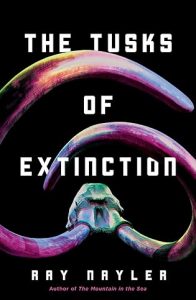 The process of becoming one with her wolf sounded exactly like the process portrayed in the
The process of becoming one with her wolf sounded exactly like the process portrayed in the  The Imposition of Unnecessary Obstacles (Mossa & Pleiti, #2) by
The Imposition of Unnecessary Obstacles (Mossa & Pleiti, #2) by 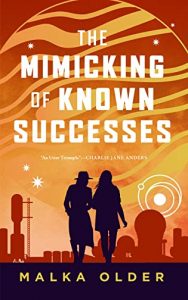 Escape Rating A+: There’s something supremely comforting about this series – and I’m oh-so-happy it IS a series because
Escape Rating A+: There’s something supremely comforting about this series – and I’m oh-so-happy it IS a series because 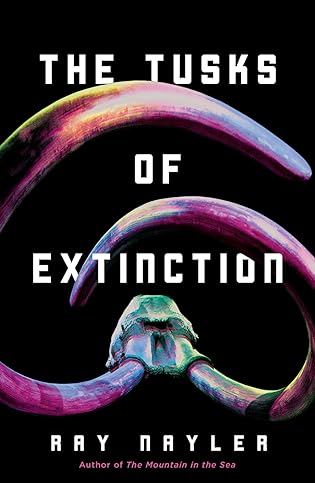 The Tusks of Extinction by
The Tusks of Extinction by 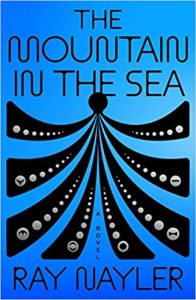 Escape Rating A-: I picked this one up because I utterly adored the author’s debut novel,
Escape Rating A-: I picked this one up because I utterly adored the author’s debut novel, 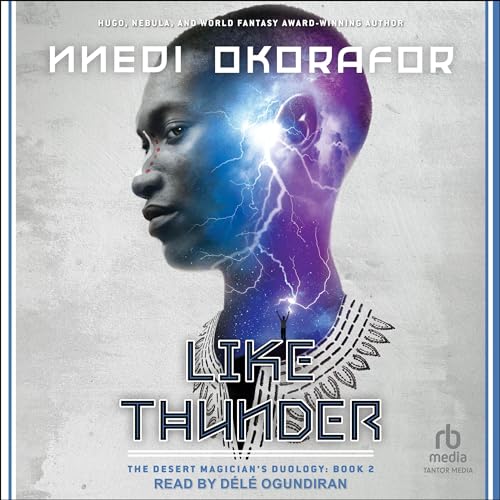 Like Thunder (The Desert Magician's Duology #2) by
Like Thunder (The Desert Magician's Duology #2) by  Escape Rating A-: As much as I loved
Escape Rating A-: As much as I loved 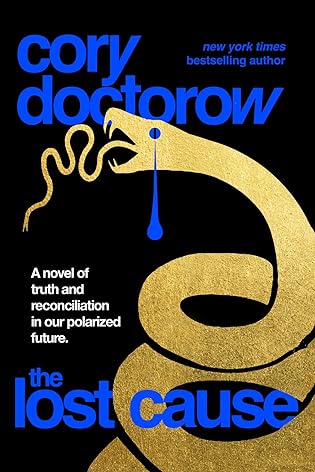 The Lost Cause by
The Lost Cause by  Shadow Speaker (The Desert Magician's Duology, #1) by
Shadow Speaker (The Desert Magician's Duology, #1) by 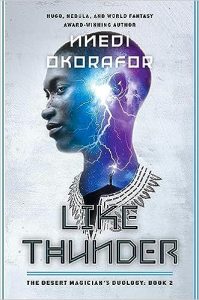 Which means that while the narrator, Délé Ogundiran, does an excellent job of standing in as Ejii’s voice, that may not be true for the second book in the duology, which will be Dikéogu’s story. Hopefully by the point in Dikéogu’s life when that story takes place, his voice will have dropped.
Which means that while the narrator, Délé Ogundiran, does an excellent job of standing in as Ejii’s voice, that may not be true for the second book in the duology, which will be Dikéogu’s story. Hopefully by the point in Dikéogu’s life when that story takes place, his voice will have dropped.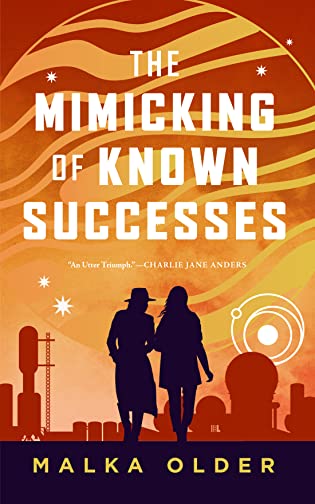 The Mimicking of Known Successes (Investigations of Mossa & Pleiti, #1) by
The Mimicking of Known Successes (Investigations of Mossa & Pleiti, #1) by 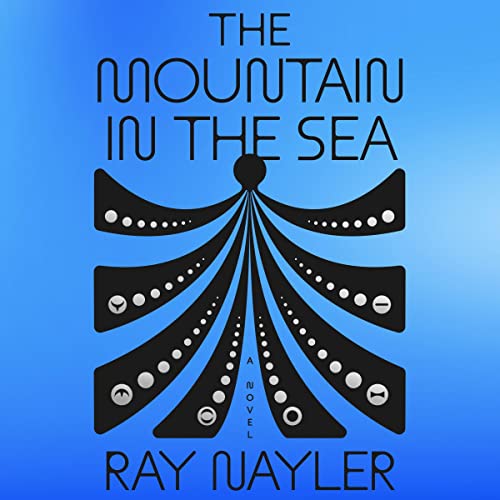 The Mountain in the Sea by
The Mountain in the Sea by  In the waters off Con Dau, DIANIMA Corporation has discovered a pod of octopuses that might, just possibly, have achieved not just a similar level of intelligence to humans, but have also independently developed the skills that vaulted humans to the top of the food chain. DIANIMA has brought Dr. Ha Nguyen to Con Dau because she quite literally wrote the book on the possibility of intelligent, communicating life developing in the world’s oceans.
In the waters off Con Dau, DIANIMA Corporation has discovered a pod of octopuses that might, just possibly, have achieved not just a similar level of intelligence to humans, but have also independently developed the skills that vaulted humans to the top of the food chain. DIANIMA has brought Dr. Ha Nguyen to Con Dau because she quite literally wrote the book on the possibility of intelligent, communicating life developing in the world’s oceans.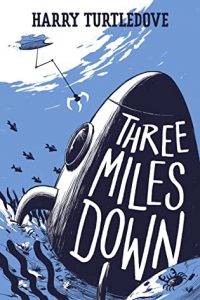 So what this story does, and does well, is to convey just the smallest sliver of how difficult it will be to find common ground with a species that doesn’t communicate the way we do, doesn’t have the same species imperatives, doesn’t move through its world the way we do, doesn’t use any body language we recognize. There’s not going to be the equivalent of the Rosetta Stone. It’s Dr. Ha Nguyen’s job to create one from scratch, while never being certain that her interpretation is anywhere near the correct target – let alone hitting a ‘bull’s eye’. If her base assumptions are off base, everything that follows after will be gibberish – with potentially catastrophic consequences.
So what this story does, and does well, is to convey just the smallest sliver of how difficult it will be to find common ground with a species that doesn’t communicate the way we do, doesn’t have the same species imperatives, doesn’t move through its world the way we do, doesn’t use any body language we recognize. There’s not going to be the equivalent of the Rosetta Stone. It’s Dr. Ha Nguyen’s job to create one from scratch, while never being certain that her interpretation is anywhere near the correct target – let alone hitting a ‘bull’s eye’. If her base assumptions are off base, everything that follows after will be gibberish – with potentially catastrophic consequences.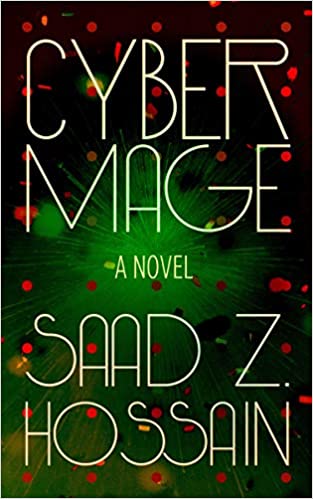 Cyber Mage by
Cyber Mage by 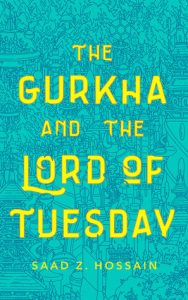 I wanted to read this book because I absolutely loved
I wanted to read this book because I absolutely loved 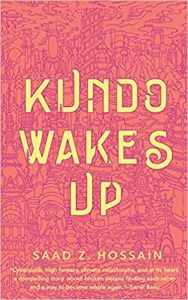 Escape Rating A: There are a couple of things about this story, and the other books I’ve read by this author, that have absolutely made me fall in love with his work. One is the extremely high snark quotient. It seems like most of his characters are possessed of a very smart mouth. In Cyber Mage, the only ones who don’t are the parents of Murzak, the Cyber Mage himself. I’m not entirely sure that their refusal to acknowledge so many of his ultimatums isn’t actually a form of passive-aggressive snark.
Escape Rating A: There are a couple of things about this story, and the other books I’ve read by this author, that have absolutely made me fall in love with his work. One is the extremely high snark quotient. It seems like most of his characters are possessed of a very smart mouth. In Cyber Mage, the only ones who don’t are the parents of Murzak, the Cyber Mage himself. I’m not entirely sure that their refusal to acknowledge so many of his ultimatums isn’t actually a form of passive-aggressive snark.